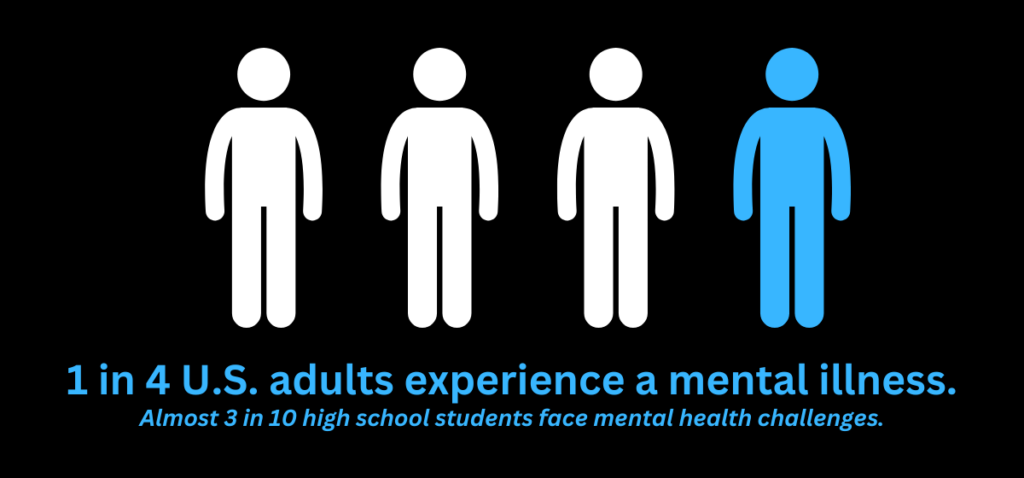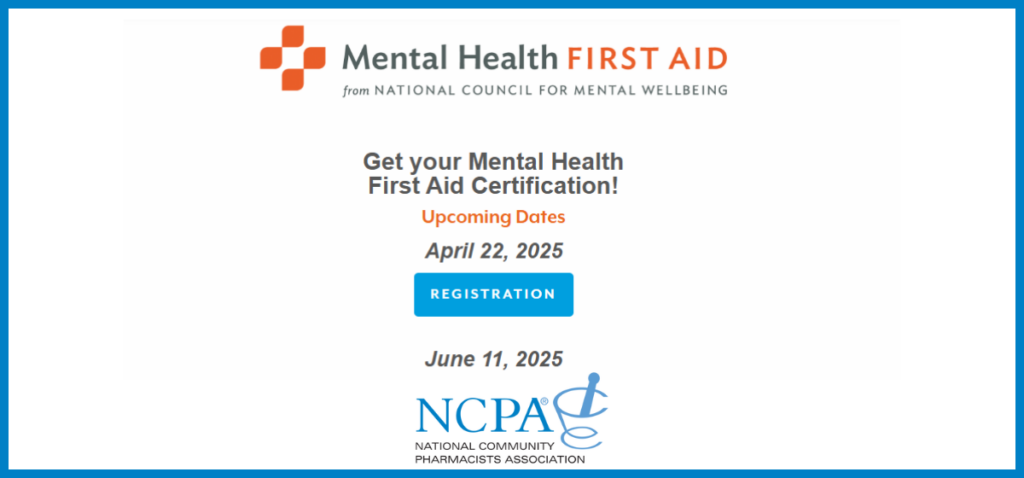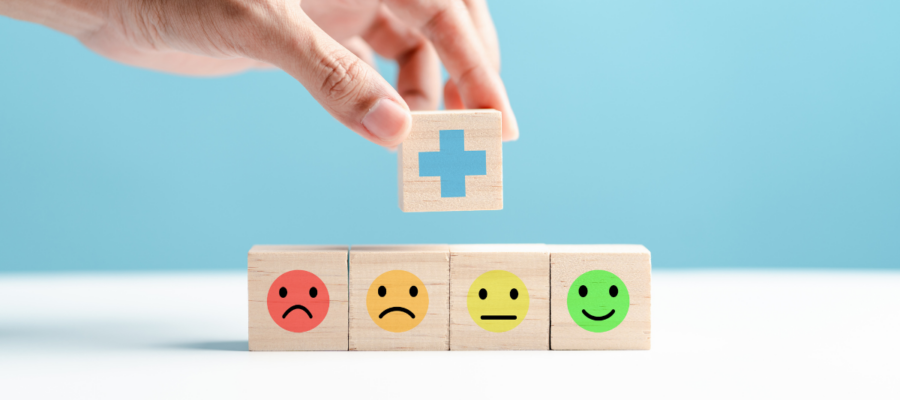Author: Manuella A. Sonnie, PharmD Candidate, Oregon State University
As a pharmacist, you’re often the first to notice subtle signs that a patient might be struggling with their mental health. While mental health care can feel out of reach for many, you have the power to bridge that gap through everyday interactions. Whether through medication counseling, adherence support, or simply being a familiar, trusted face, your impact on mental health care is significant.
Recognizing Mental Health Struggles in Patients
The Centers for Disease Control and Prevention (CDC) estimates that more than 1 in 4 U.S. adults experience a mental illness, and almost 3 in 10 high school students face mental health challenges. Medication adherence is crucial in their treatment, and pharmacists are in a unique position to notice early signs that a patient may be struggling. These include:
- Missed refills or delays in picking up medications
- Changes in demeanor or mood during interactions
- Questions about side effects indicating concerns about adherence
- Switching or discontinuing medications without medical direction

For example, a regular patient may start delaying refills and seem quieter than usual. When they ask if skipping doses would “really make a difference,” it’s a sign that they may be struggling with adherence. Starting a conversation about how consistency is key and offering to check in next time can make a big difference.
How to Start the Conversation
Opening a dialogue about mental health can be challenging. Here are some supportive ways to approach it:
- “I’ve noticed you’ve had some gaps in picking up your medication. Is there anything I can do to help?”
- “Some patients experience side effects that can affect mood or energy. Have you noticed anything like that?”
- “Managing medications can be tricky—would you like to go over any concerns you have?”

By keeping the conversation open and nonjudgmental, you encourage patients to share concerns without feeling pressured.
Independent Pharmacies: A Personal Approach to Mental Health Support
Independent pharmacies have the flexibility to offer personalized care that larger chains may not be able to. Services like wellness check-ins, medication synchronization, and partnerships with mental health professionals allow pharmacists to provide tailored support for mental health.
Some examples include:
- Wellness check-ins to follow up on medication and well-being
- Medication synchronization to improve adherence and reduce stress
- Collaborations with local mental health providers to offer additional resources
Pharmacists as Mental Health Advocates
Your role extends beyond dispensing medications. By fostering open conversations, recognizing early signs of mental health struggles, and implementing patient-centered services, you help create a healthcare environment where mental well-being is prioritized.
Call to Action
How can you enhance your pharmacy’s approach to mental health care? Whether it’s implementing adherence programs, collaborating with mental health professionals, or simply engaging in more patient conversations, small steps can make a big impact.
Did you know that pharmacists and pharmacy team members are more likely to encounter mental health episodes in patients than to a situation requiring basic life support or CPR?
NCPA’s Mental Health First Aid certification, from the National Council for Mental Wellbeing, will equip you to identify and respond to mental health and substance use challenges in your pharmacies. Click on the link below to register.

Thanks to the Cardinal Health Foundation, NCPA members can register for just $45 (non-members for $95) – a $50 discount off both rates. The next training session is April 22, with registration closing on April 15 at noon ET. (Another session will be offered on June 11.) Each session is limited to 30 registrants. Sessions are virtual.
Conclusion
Pharmacists are not just medication experts—they are accessible, trusted healthcare professionals who can make a profound difference in mental health care. By recognizing struggles, starting conversations with empathy, and offering tailored support, you help patients navigate their treatment journeys with confidence. Your role in mental health advocacy is invaluable, and a simple interaction could be the turning point for someone in need.

